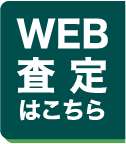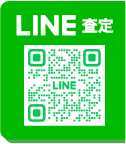The Rise of Student-Driven Encyclopedias: Transforming Discovering Landscapes
In the ever-evolving world of education and learning, where details flows abundantly and access to understandi […]
In the ever-evolving world of education and learning, where details flows abundantly and access to understanding is just a click away, student-driven encyclopedias are emerging as a dynamic device in the discovering procedure.

These platforms not just give students with a database of information however likewise urge them to contribute, edit, and curate material, fostering a collaborative and interactive understanding setting.
As educational paradigms shift towards more participatory and comprehensive models, the concept of student-driven encyclopedias embodies this makeover. These systems equip pupils to end up being energetic participants in expertise development, connecting the void between traditional book understanding and modern digital sources.
The Principle of Student-Driven Encyclopedias
Student-driven encyclopedias are electronic systems where students collectively collect, confirm, and distribute information on a wide selection of topics. Unlike standard encyclopedias, which are commonly created by experts, these systems leverage the joint initiatives of students to create a thorough body of understanding.

At their core, student-driven encyclopedias are created to cultivate important reasoning, study abilities, and electronic literacy among students. By participating in the process of web content development, pupils learn to navigate and examine information critically, skills that are crucial in today’s information-rich society.
Additionally, these platforms act as an area for students to discover their passions and share their competence. This democratic method to understanding production makes certain that a varied variety of perspectives and voices are represented, improving the finding out experience for all participants.
- Students acquire hands-on experience in study and web content production.
- Encourages partnership and peer communication.
- Advertises a deeper understanding of topic.
- Fosters inclusivity and diversity in expertise depiction.
In essence, student-driven encyclopedias change students from passive receivers of info into energetic contributors, instilling a feeling of ownership and duty in their instructional journey.
Advantages of Student-Driven Encyclopedias
One of the major benefits of student-driven encyclopedias is the advancement of vital 21st-century abilities. As students engage in the procedure of web content production, they hone their essential reasoning, electronic proficiency, and communication skills, every one of which are vital in today’s interconnected globe.
Additionally, these platforms urge a collaborative learning atmosphere, where students can work together to confirm details, argument different viewpoints, and co-edit posts. This study support platform peer-to-peer communication not only enhances learning outcomes but likewise fosters a sense of area and shared respect amongst pupils.
Additionally, student-driven encyclopedias provide a system for showcasing pupil job. As pupils contribute to the encyclopedia, they develop a portfolio of their research and writing, which can be invaluable for further academic and specialist pursuits.
Challenges and Limitations

Despite the countless advantages, student-driven encyclopedias also encounter particular obstacles. Making certain the accuracy and reliability of details is critical, as these platforms rely upon payments from trainees who might not yet possess expert-level expertise.
- Keeping content quality and precision.
- Providing adequate guidance and guidance.
- Making certain equitable accessibility and inclusivity.
To minimize these challenges, lots of student-driven encyclopedias execute a system of checks and balances, where material is examined by instructors or professionals before magazine. This ensures that the details presented is both accurate and trustworthy, upholding the integrity of the system.
The Future of Student-Driven Encyclopedias
As modern technology continues to advance and the landscape of education progresses, the possibility for student-driven encyclopedias is substantial. These systems have the ability to not just complement standard educational resources however also redefine the way understanding is obtained and shared.
In the future, we may see student-driven encyclopedias incorporating advanced innovations such as expert system and artificial intelligence to boost content curation and personalization. Furthermore, they may increase past textual details to include multimedia material, providing an extra immersive understanding experience.
Encouraging the Future Generation
Student-driven encyclopedias hold the guarantee of encouraging the future generation of learners. By placing trainees at the helm of expertise production, these platforms encourage long-lasting understanding, interest, and intellectual self-reliance.
To conclude, as instructional systems remain to innovate, student-driven encyclopedias stand as a testament to the power of cooperation and the value of trainee agency in the understanding procedure. By accepting these systems, we unlock to an extra inclusive, engaging, and dynamic instructional experience for all.





